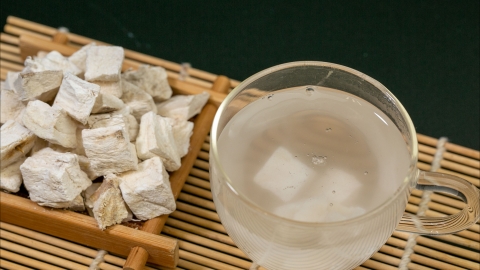Can I eat kudzu root during lactation?
Generally speaking, women can consume kudzu root during lactation, but should do so in moderation. The detailed explanation is as follows:

Kudzu root contains puerarin, which can stimulate breast development, increase milk production, and help alleviate insufficient milk supply. Its antispasmodic effect helps relieve breast engorgement pain during lactation and improves breast circulation. Soybean isoflavone glycosides regulate endocrine function, enhance immunity, improve sleep quality, and relieve postpartum fatigue.
Kudzu root is cool in nature. Women with deficiency-cold in the spleen and stomach may experience gastrointestinal discomfort such as diarrhea and abdominal pain after consumption, which may indirectly affect the quality of breast milk. Some individuals may be allergic to kudzu root, experiencing reactions such as rashes and itching. An allergy test should be conducted in advance. Additionally, it should be consumed in moderation to avoid excessive intake that may burden the spleen and stomach.
Kudzu root can be cooked in soup with warm-natured ingredients such as chicken or pork ribs to neutralize its cold properties while also supplementing protein. After first consumption, monitor both maternal and infant reactions. If symptoms such as diarrhea or infant fussiness occur, discontinue use immediately and seek medical attention.








